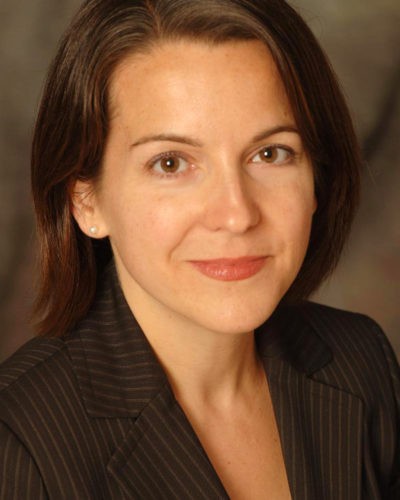After two years of dedicated service, Molly Seals is stepping down as Chair of the CareerSTAT Executive Committee. Her leadership has shaped CareerSTAT’s mission and has been essential in deepening CareerSTAT’s work. Her passion, focus and insight will be missed, but CareerSTAT is lucky to have another strong voice and workforce expert led it’s governing body of healthcare representatives.
 Joanne Pokaski is the Director of Workforce Development at Beth Israel Deaconess Medical Center (BIDMC) located in Boston, MA. As one of the largest academic medical institutions in Massachusetts and a key partner of the National Fund’s Boston partner SkillWorks, BIDMC is a leader in developing and advancing frontline healthcare workers.
Joanne Pokaski is the Director of Workforce Development at Beth Israel Deaconess Medical Center (BIDMC) located in Boston, MA. As one of the largest academic medical institutions in Massachusetts and a key partner of the National Fund’s Boston partner SkillWorks, BIDMC is a leader in developing and advancing frontline healthcare workers.
We spoke with Joanne as she is starting her leadership to hear how CareerSTAT has impacted her organization and what excites her about leading the CareerSTAT network.
What does CareerSTAT believe in and who does it serve?
CareerSTAT was founded by healthcare employers actively working to support the careers of their frontline workers. We seek to create a national network of employers investing in their frontline workers and encourage more health care employers to take up the practice.
How does CareerSTAT help healthcare organizations and workers?
CareerSTAT seeks to encourage more employers nationally to invest in their frontline workers through documenting best practices, engaging employers and using information from current practice to help employers understand that investing in employees, when done well, is not only a nice thing to do, but makes business sense.
Workers benefit greatly when their employers see them as a resource and invest in their skills and careers.
As a healthcare leader, why do you participate in CareerSTAT and how does it support your organization?
Over time I have found that connecting to peer group of workforce directors at other local healthcare employers has been really helpful in terms of understanding best practices, benchmarking BIDMC practice, and asking advice from my colleagues. The Boston Private Industry Council’s Boston Healthcare Careers Consortium (which Pokaski also chairs) formalized a way for employers, the workforce system and the education system to come together and share helpful information at the regional level.
CareerSTAT is building a national peer group of healthcare employers who are investing in the skills of their frontline workers.
I now have more people that I can learn from and share information with. Over the next few years, I believe CareerSTAT will be able to offer a lot of information to my colleagues nationally about how and why to invest in frontline worker skills and an internal talent pipeline.
What most excites you about leading CareerSTAT and its national network?
One thing that has genuinely surprised me is how little we know about how many employers nationally are actively investing in their workforce and what they are doing. I think CareerSTAT will really shed some light on this in the next few years.
What is your vision for CareerSTAT’s future?
My vision is for CareerSTAT to be the resource that is most helpful to employers looking to build or strengthen an internal career advancement strategy for their employees. We will be a strong community of practice with highly engaged members from across the country.
Learn more about CareerSTAT and join its network of healthcare leaders to access in-depth resources, peer-learning opportunities and technical assistance.





